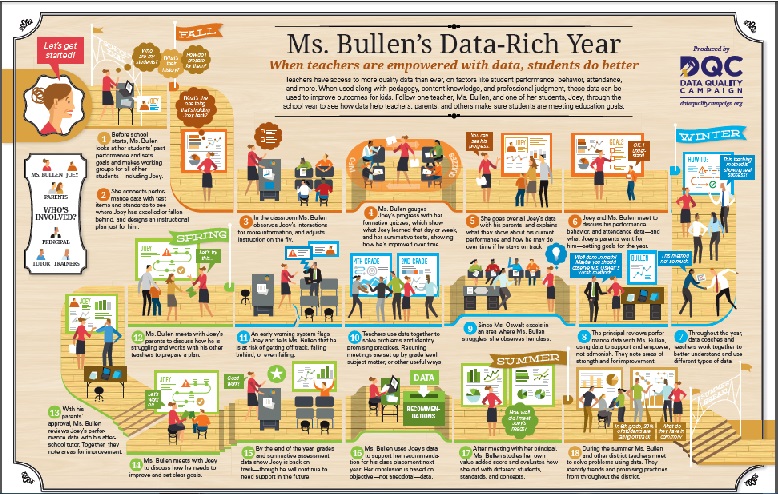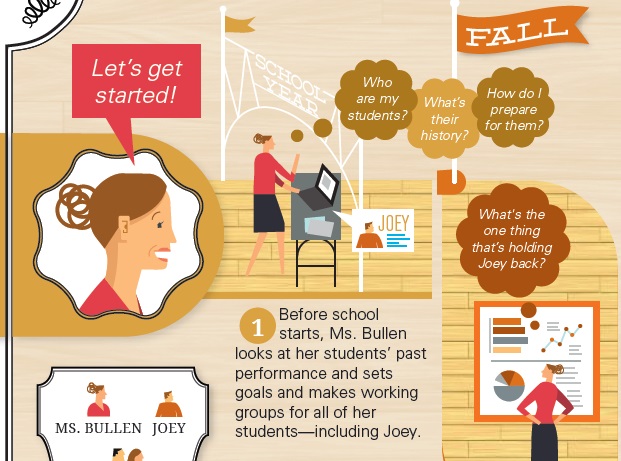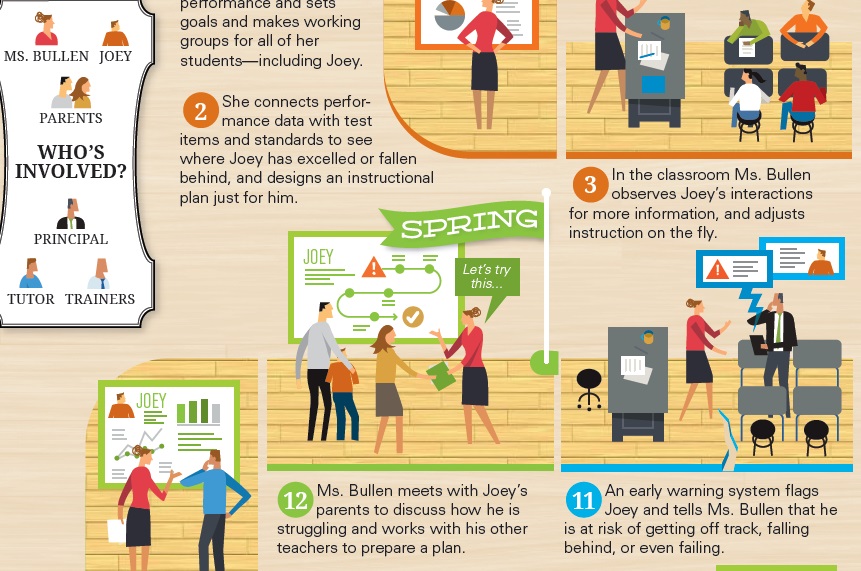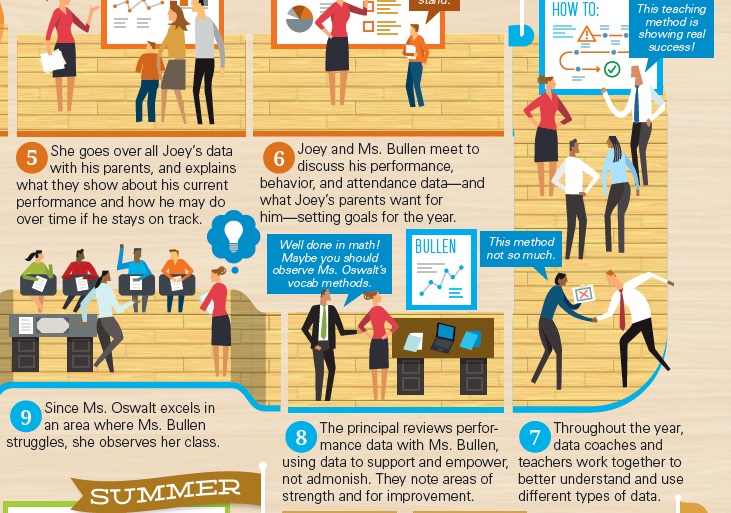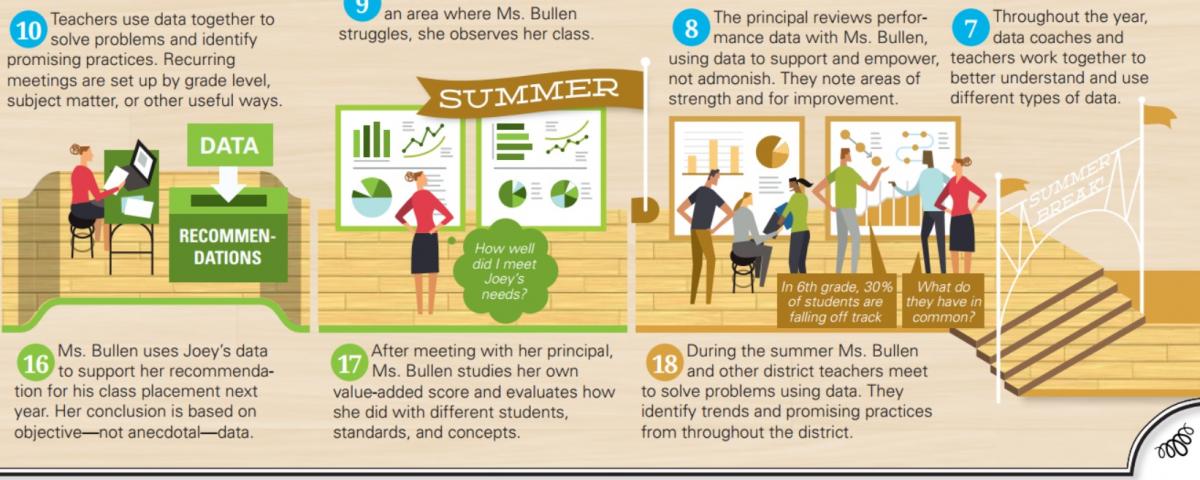 One of my personal goals for this blog and this website is that I offset my various rants and carryings on that no one cares about with positive thoughts and potentially useful resources that no one cares about. I like to think of this as “being balanced.”
One of my personal goals for this blog and this website is that I offset my various rants and carryings on that no one cares about with positive thoughts and potentially useful resources that no one cares about. I like to think of this as “being balanced.”
That balance will not be helped by this post.
BUT PLEASE: Stop telling us to quit doing stuff we’re not doing, and stop acting like it’s the first time anyone even thought to mention it.
I realize not every teacher in every district of every state is in the same place pedagogically. I get that we collectively have far to go before we can claim to have moved public education – particularly in the social sciences – much past the 19th Century. But I swear to Horace Mann, if I read one more article encouraging me to ditch my mimeographed fill-in-the-blank worksheets and Ferris Bueller-style lectures for some cutting edge “interaction” with students, I’m going to hurl my McGuffey’s reader through someone’s chalk slate.
In the military this is known as “always fighting the last war.” In the movies, it’s something far worse – the notorious plot device known as the “Time Loop.”
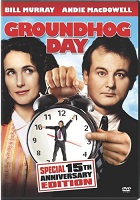 Most of you remember Groundhog Day, a movie I felt like I’d seen a dozen times before I was even through my first box of Milk Duds. The basic premise – that something is causing a person, group, or starship, to repeatedly jump back in time to relive a set of experiences with only minor variations – was sci-fi trope long before Bill Murray had those extra pancakes.
Most of you remember Groundhog Day, a movie I felt like I’d seen a dozen times before I was even through my first box of Milk Duds. The basic premise – that something is causing a person, group, or starship, to repeatedly jump back in time to relive a set of experiences with only minor variations – was sci-fi trope long before Bill Murray had those extra pancakes.
The thing is, whether you’re in sci-fi or romantic comedy, it sucks to be the character gradually becoming aware you’re stuck in this season’s time loop.
Don’t misunderstand – there’s nothing wrong with revisiting the fundamentals of effective teaching. It’s when we repeatedly present the same few platitudes as epiphanies and brave new truths that I get a bit… hostile.
(1) Worksheets aren’t exciting kids about learning.
Make sure Watson writes that one down. “The worksheet did nothing in third period – that was the curious incident!”
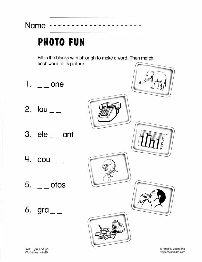 Workshop leaders or edu-bloggers rarely “open” with this grand bit of modern wisdom – it’s saved for the ‘impact’ moment of the autobiographical anecdote demonstrating both connection with the audience and touching vulnerability – the kind that makes you trust someone enough to buy their book.
Workshop leaders or edu-bloggers rarely “open” with this grand bit of modern wisdom – it’s saved for the ‘impact’ moment of the autobiographical anecdote demonstrating both connection with the audience and touching vulnerability – the kind that makes you trust someone enough to buy their book.
It’s always the same anecdote – “I taught for 72 years and couldn’t figure out why my kids didn’t love history [or literature, or math, etc.] as much as I did, although I lectured every day and assigned thousands of vocabulary words and only used one book – the textbook – for everything. One day, I had [insert epiphany experience] and suddenly I understood! This crap was boring! Who knew? Now I’m on the lecture circuit pointing very serious, passionate-for-the-children fingers at any of you who don’t applaud or at least nod enthusiastically when I reveal this magnificent bromide.
No one who needs to be told that worksheets are boring and largely useless is going to read your book, Cassandra. No one uses the damn things believing they’re good for anything other than shutting the kids up for a period or filling some of the required number of grades to be given each week. It’s far more likely they just don’t care – in which case we have a problem, but a very different problem than you’ve assumed. We may be lazy, bitter, and apathetic, but we’re not stupid. You should move on to a more current, relevant problem in public ed, like kids staying home once planting season starts, or cholera.
(2) Lectures are obsolete, boring, and destroying the future.
I’m going to go out on a bit of a limb and tell the PD world and the “Education”-tagged section of the Blogosphere that, while amusing in the occasional sitcom or 80’s movie, NO ONE DOES THIS ANYMORE, so you can STOP TELLING US NOT TO DO THIS.
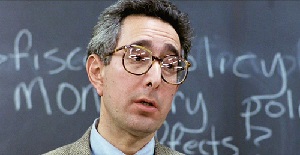 I’m sorry you had that one boring teacher in high school all those years ago, I really am. I got sick on chocolate chip pancakes when I was 17 and projectile-vomited all over the hall bathroom, but I’m 47 now and don’t carefully construct each week’s menu around the dangers of Bisquick. Get over it.
I’m sorry you had that one boring teacher in high school all those years ago, I really am. I got sick on chocolate chip pancakes when I was 17 and projectile-vomited all over the hall bathroom, but I’m 47 now and don’t carefully construct each week’s menu around the dangers of Bisquick. Get over it.
Yes, too much lecture can lose its effectiveness, and some people suck at it all the time. I feel the same way about foldables, but no one’s damning them with impunity every time two or more are gathered. My students love most of my lectures, and this is true of more history teachers than not. They remember the stuff we cover that way, and ask me to do it more often.
I’ve dialed back the straightforward ‘teaching’ stuff in recent years because of my department’s focus on skills and transitioning students into being able to learn on their own. As a result they learn less history over the course of my year and have less excitement about it, because they’ve heard fewer stories and I’m far less Sesame-Street-On-Crack than I was a decade ago. I don’t regret pushing them to wear their big-student panties, but I do miss the joys of so much content flowing freely and without guilt.
It’s a trade-off between good and better, not repentance from a life of sin and direct instruction.
(3) Names, dates, places, and other facts don’t matter anymore – kids can Google that stuff.
Like lecture, this is a special favorite of non-history people explaining to us simple social studies folks about how things work here in the post-moon-landing world. They don’t seem as quick to tell the math people that kids don’t need to know numbers or what those funny signs (+ ÷ ≥ ¾ ≠) are because math is about the process and they can look up this ‘pi’ so often discussed by those trapped in the dark times. And we actually encourage building vocabulary in English class in order to help kids become better readers, rather than casting ‘words’ aside as quaint relics of days past.
 The funny thing about history is that most of it cannot, in fact, be effectively understood without some knowledge of specifics. Yeah, it’s the big picture stuff that often matters most, and connects us to the past, and teaches us those grand lessons and such, but it’s all built out of particulars. History generally happens to people in places at certain times.
The funny thing about history is that most of it cannot, in fact, be effectively understood without some knowledge of specifics. Yeah, it’s the big picture stuff that often matters most, and connects us to the past, and teaches us those grand lessons and such, but it’s all built out of particulars. History generally happens to people in places at certain times.
You can Google just about anything, but the important answers are often long and complicated and assume you have a precursory body of knowledge for them to make any sense. Eventually in order to learn anything of value you have to know something on which to build.
Give our teachers a little credit for knowing what they’re doing and why they’re doing it. And if there are a smattering stuck in the 19th century and unwilling to at least throw on some elbow patches and join us in the 1970’s, the problem is most likely something OTHER than not having read your blog.

 You ever across something while browsing online, and wish you hadn’t? I believe it was
You ever across something while browsing online, and wish you hadn’t? I believe it was 